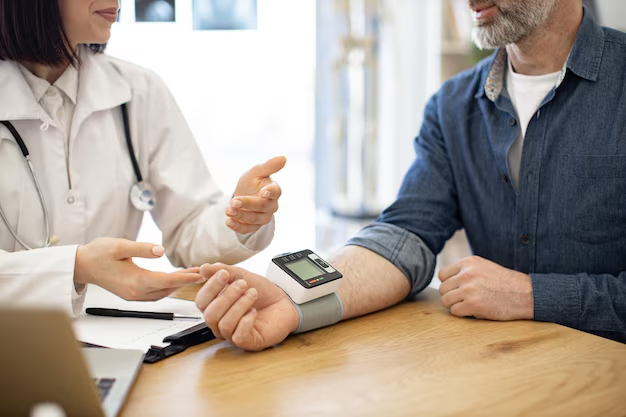Does Worrying Elevate Your Blood Pressure? Everything You Should Know
Picture this: you’re getting ready for a big presentation at work, your heart races, your palms sweat, and you feel a tightening grip in your chest. Most assume these are textbook symptoms of anxiety, but can they also indicate a rise in blood pressure? Are these mere fleeting sensations, or do they herald a deeper health concern? Understanding the intricate relationship between anxiety and blood pressure can be the key to managing both effectively.
Anxiety and Blood Pressure: The Connection
Understanding the Basics: What Happens When Fear Strikes
When you experience anxiety, the body responds much like it would to any perceived threat. This reaction, often dubbed the "fight-or-flight" response, is driven by the release of hormones like adrenaline. These hormones play a pivotal role in increasing your heart rate and contracting your blood vessels, ultimately raising your blood pressure temporarily.
Short-term vs Long-term Effects
Short-term Increase: In moments of acute anxiety, your blood pressure can surge. Think of it as your body’s way of turbocharging to tackle a challenge.
Long-term Implications: While anxiety itself doesn’t cause chronic high blood pressure (hypertension), repeated episodes of anxiety-induced surges might contribute to heart health issues over time.
The Role of Lifestyle and Behavior
Chronic anxiety often leads to unhealthy lifestyle choices. Frequent worry can drive individuals towards smoking, excess caffeine consumption, poor diet, and inadequate sleep — all of which are known culprits in exacerbating high blood pressure.
Diving Deeper: Psychological and Physiological Dimensions
Mental Stress and the Body’s Response
When stress becomes a constant presence in your life, your body remains in a state of heightened alert. This continuous “on-edge” feeling can wear down blood vessels, making them less flexible and more susceptible to damage, compounding the risk of hypertension.
Anxiety Disorders and Blood Pressure Patterns
For individuals with diagnosed anxiety disorders, life is often a rollercoaster of emotions. Conditions such as Generalized Anxiety Disorder (GAD) or Panic Disorder involve recurring episodes that consistently challenge the heart and vascular system.
Panic Attacks: These sudden, intense bursts of anxiety can cause significant spikes in blood pressure, although they typically remit once the episode subsides.
Chronic Anxiety: Persistent anxiety can lead to stress-induced habits that directly harm heart health, from poor diet and sedentary lifestyle to substance misuse.
Practical Strategies to Manage Both Anxiety and Blood Pressure
Mindfulness and Relaxation Techniques
Embracing mindfulness allows you to focus on the present, cultivating a sense of calm that wards off anxiety and helps regulate blood pressure. Techniques include:
- Deep Breathing: Slow, measured breaths can counter anxiety-induced tension.
- Progressive Muscle Relaxation: Tensing and releasing muscles, part by part, helps reach a state of relaxation.
- Meditation: Regular sessions can lower stress hormone levels and optimize your heart rate.
Regular Physical Activity: The Dual Benefits
Engaging in regular exercise not only reduces anxiety but also bolsters cardiovascular health. Activities like walking, cycling, or yoga enhance mental well-being while keeping your blood pressure in check.
Nutrition and Diet: Eating for a Calm Heart
A balanced diet rich in whole foods, fruits, and vegetables can boost mood and support heart health. Focus on:
- Omega-3 Fatty Acids: Found in fish and flaxseeds, these reduce inflammation and have a calming effect.
- Potassium-rich Foods: Bananas, sweet potatoes, and spinach help counterbalance sodium and lower blood pressure.
Professional Help: When to Consider Therapy
If anxiety or blood pressure issues seem overwhelming or persist despite lifestyle changes, seeking professional guidance is wise. Cognitive-behavioral therapy (CBT) is particularly effective in challenging anxious thought patterns, thereby indirectly assisting in blood pressure regulation.
Understanding Medication: The Implications
Medication for Anxiety or Hypertension?
In some cases, doctors may prescribe medication to manage anxiety or blood pressure, or sometimes both simultaneously. Understanding the nature and purpose of these drugs can help ease apprehensions around their usage:
Anxiolytics: Medications designed to reduce anxiety might also offer indirect benefits for blood pressure by alleviating constant stress.
Antihypertensives: Directly target high blood pressure; some of these, such as beta-blockers, may also help reduce anxiety symptoms by slowing the heart rate.
Potential Side Effects and Considerations
While medications can be pivotal, it’s crucial to be informed about potential side effects and interactions. Always discuss any concerns or questions you have with a healthcare provider to navigate potential risks effectively.
Insights and Reflections
Understanding the dynamic interplay between anxiety and blood pressure is key to managing both effectively. Whether by adopting lifestyle changes, leveraging stress-reduction techniques, or seeking professional advice, you take charge of your health.
Fostering awareness of both mental and physical health can help in building a balanced, resilient life. Remember, while anxiety can momentarily spike blood pressure, anchoring oneself in preventive habits can ensure these spikes don’t translate into chronic problems.
Quick Takeaways for a Healthier Mind and Heart:
- 🧘 Practice mindfulness to counter anxiety and support heart health.
- 🥗 Incorporate omega-3-rich foods into your diet for mood and heart benefits.
- 🥦 Potassium supports blood pressure balance – think bananas and spinach!
- 🚴♂️ Regular exercise is a win-win for mental and cardiovascular health.
- 🩺 Consider therapy if anxiety feels overwhelming; it’s a proactive choice.
By understanding and observing these connections and embracing supportive strategies, you empower yourself with the tools to nurture both mind and body. After all, a healthy heart and a peaceful mind often go hand in hand.

